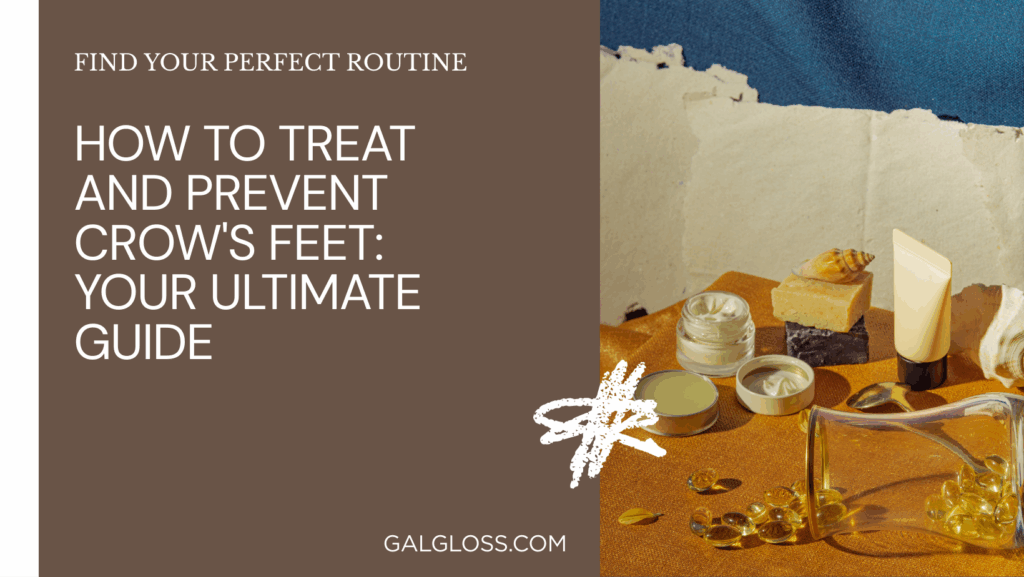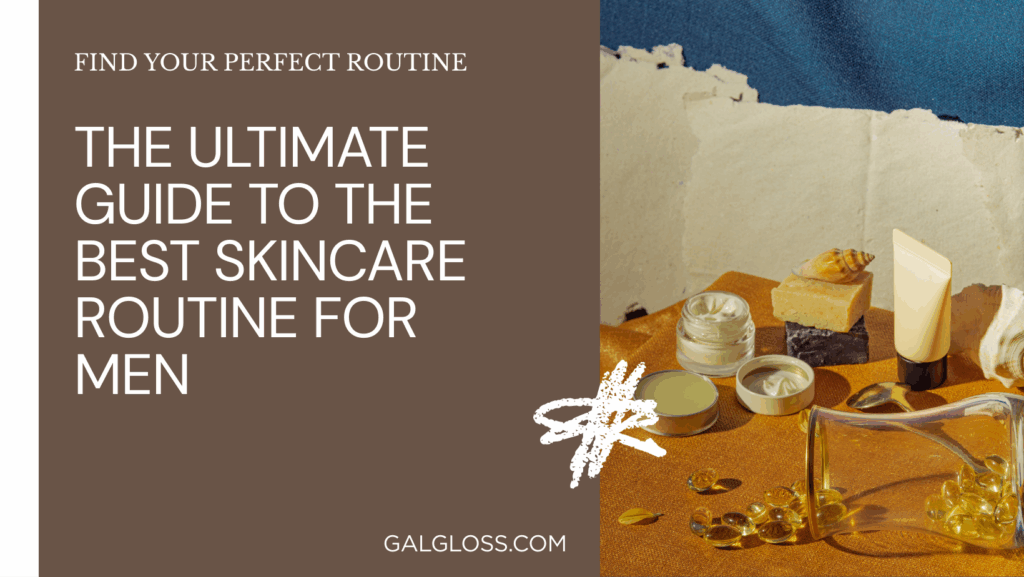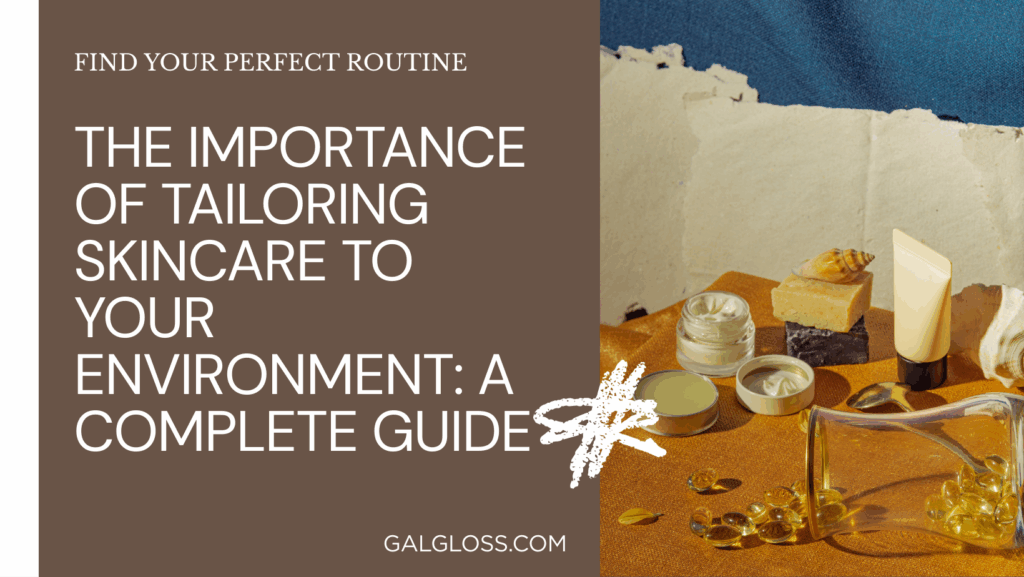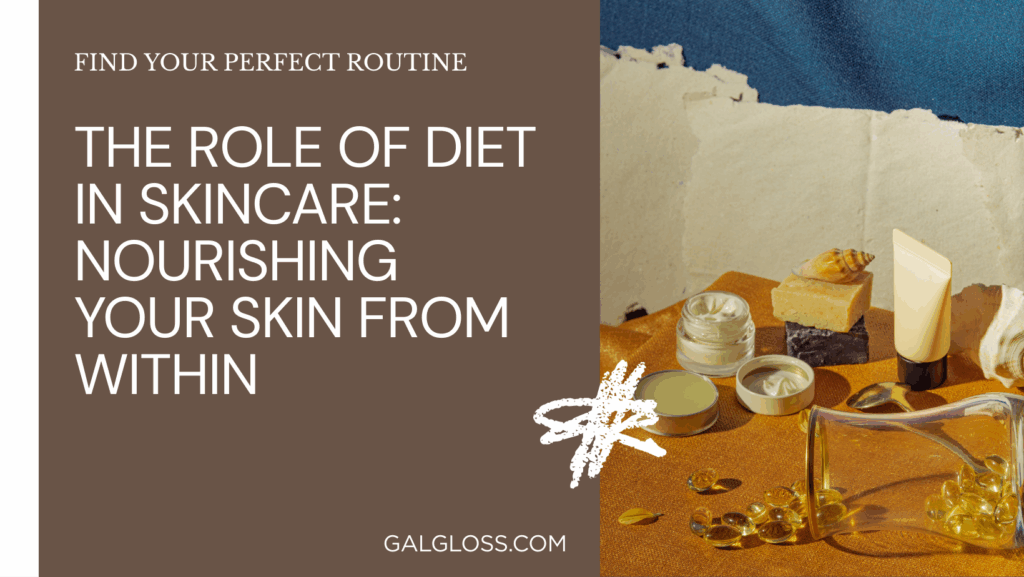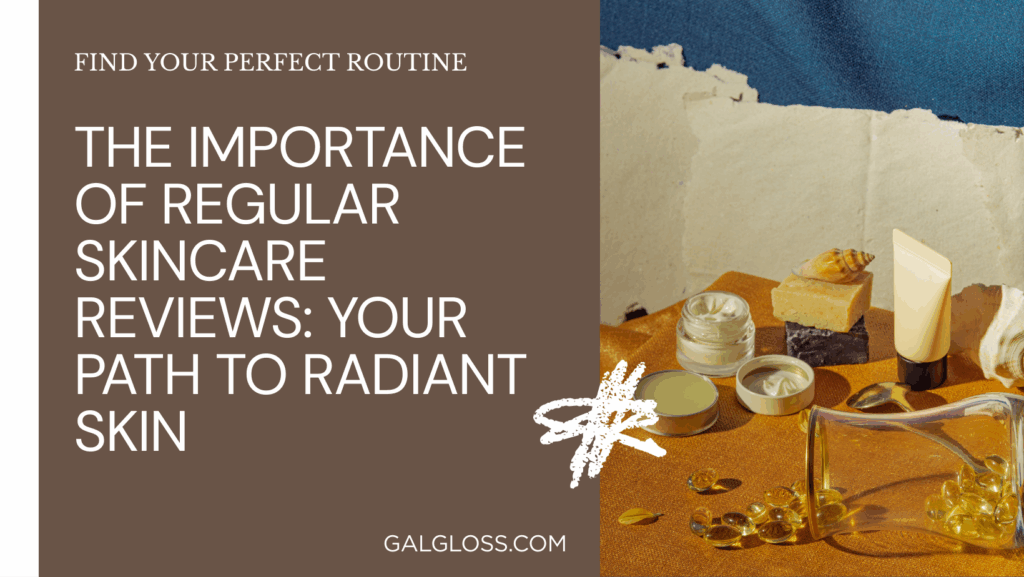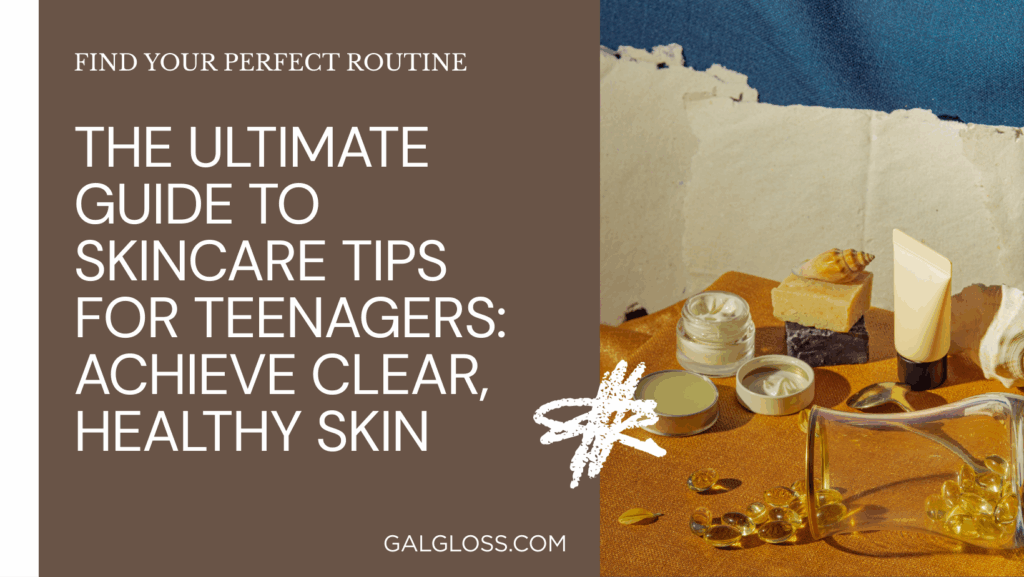Ever caught yourself wondering why they call it “beauty sleep”? Well, it’s not just a catchy phrase – there’s some serious science behind it! Let’s dive into the fascinating world where catching Z’s meets glowing skin.
You see, while you’re off in dreamland, your skin’s working overtime. It’s like a mini spa treatment happening right on your pillow. But here’s the kicker: skimping on sleep isn’t just making you yawn through your morning coffee – it’s showing up on your face too.
So, buckle up, beauty enthusiasts! We’re about to uncover why quality sleep is your skin’s best friend. Trust me, by the end of this, you’ll be looking at your bed with newfound appreciation. Ready to unlock the secrets of beauty sleep? Let’s go!
The Science Behind Beauty Sleep
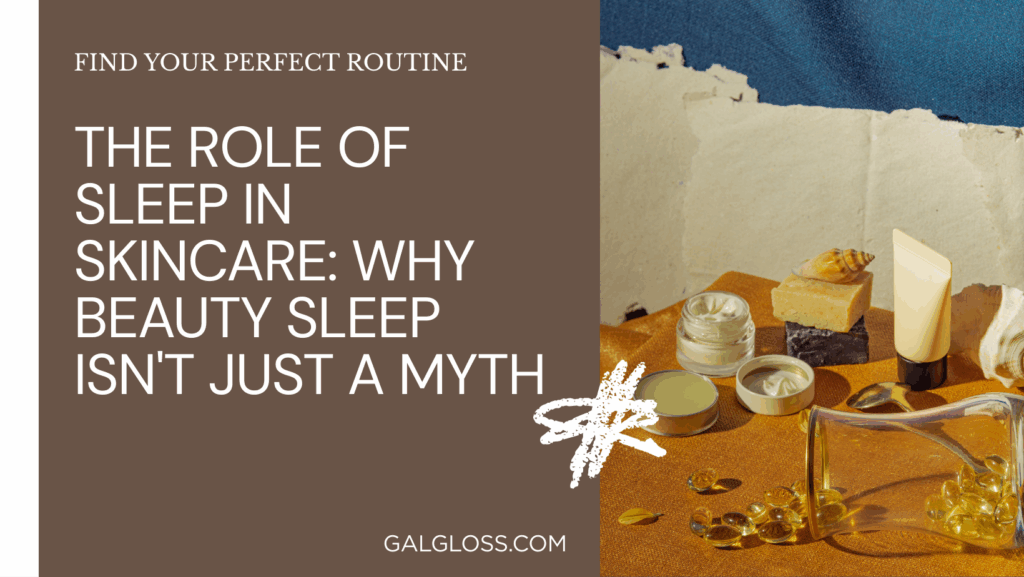
How Sleep Affects Skin Health
Ever notice how your skin looks a bit… meh after a late night? There’s a reason for that! While you’re snoozing, your skin’s busy repairing itself. It’s like a microscopic construction crew working the night shift.
During sleep, your body kicks cellular regeneration into high gear. Think of it as your skin’s personal reset button. But that’s not all – your body also ramps up collagen production while you’re in la-la land. Collagen’s the stuff that keeps your skin firm and bouncy. Without it, you’d look like a deflated balloon!
But wait, there’s more! Sleep also helps strengthen your skin’s barrier function. This is your skin’s personal bodyguard, protecting you from nasty environmental baddies. A good night’s sleep? It’s like sending your skin’s bodyguard to the gym.
The Skin’s Circadian Rhythm
Did you know your skin has its own internal clock? Yep, just like you, your skin follows a circadian rhythm. It’s like a 24-hour skincare schedule programmed by Mother Nature herself.
During the day, your skin’s in defense mode, battling UV rays and pollution. But at night? That’s when the real magic happens. Your skin switches to repair mode, working hard to undo the day’s damage.
So, how can you make the most of this natural cycle? Simple – sync your skincare routine with your skin’s rhythm. Save those heavy-duty treatments for bedtime when your skin’s in full-on repair mode. It’s like giving your skin a helping hand when it needs it most.
The Consequences of Sleep Deprivation on Skin
Visual Signs of Sleep Deprivation
Ever looked in the mirror after a late night and thought, “Yikes”? Yeah, we’ve all been there. Lack of sleep shows up on your face faster than you can say “insomnia.”
First up: dark circles and puffy eyes. When you don’t get enough shut-eye, blood vessels dilate, creating that lovely raccoon look. And puffiness? That’s thanks to fluid retention. Your body’s basically throwing a tantrum because you didn’t let it rest.
But it doesn’t stop there. Sleep-deprived skin tends to look dull and lackluster. It’s like your skin’s personal glow-up got canceled. And let’s not forget about premature aging. Skimp on sleep regularly, and you might as well be rolling out the red carpet for wrinkles.
Physiological Effects
Now, let’s get a bit sciency. When you don’t sleep enough, your body goes into stress mode. It starts pumping out cortisol like it’s going out of style. And guess what? Too much cortisol can lead to skin inflammation. Hello, acne and redness!
Sleep deprivation also messes with your skin’s hydration levels. Ever noticed how your skin feels drier after a late night? That’s because lack of sleep can decrease your skin’s ability to stay hydrated. It’s like forgetting to water a plant – things start looking pretty wilted.
And if you’re trying to heal a pesky pimple or a cut? Good luck with that if you’re not getting enough Zs. Sleep deprivation can slow down wound healing. It’s like your skin’s repair crew decided to take an extended coffee break.
Optimizing Sleep for Better Skin
Creating the Ideal Sleep Environment
Want to wake up looking like a million bucks? It starts with your sleep setup. Think of your bedroom as your personal beauty spa.
First up: temperature and humidity. Aim for a cool room (around 65°F or 18°C) with about 50% humidity. It’s like creating the perfect climate for a skin-rejuvenating vacation.
Next, tackle light and noise. Darkness is your friend when it comes to quality sleep. Invest in some blackout curtains or a comfy sleep mask. And noise? White noise machines can be a game-changer. It’s like creating a cozy cocoon for your beauty sleep.
Don’t forget about your pillowcase! Silk or satin pillowcases aren’t just luxurious – they’re gentler on your skin and hair. It’s like giving your face a smooth landing pad for the night.
Developing a Healthy Sleep Routine
Consistency is key when it comes to sleep. Try to hit the hay and wake up at the same time every day – yes, even on weekends! It’s like setting your body’s internal clock.
Before bed, create a relaxing routine. Maybe it’s a warm bath, some gentle stretching, or a bit of meditation. Think of it as pressing your skin’s reset button.
And please, for the love of good skin, avoid those sleep disruptors! That means saying goodbye to late-night scrolling (blue light is not your friend) and cutting off the caffeine in the afternoon. Your skin will thank you in the morning.
Nighttime Skincare Routine for Maximum Benefits
Key Ingredients for Overnight Skin Repair
Now, let’s talk about giving your skin some extra love while you snooze. There are a few superstar ingredients you’ll want in your nighttime arsenal.
First up: retinol. This vitamin A derivative is like a personal trainer for your skin cells, encouraging them to turn over faster. The result? Smoother, younger-looking skin.
Next, hyaluronic acid. This hydration hero can hold up to 1000 times its weight in water. It’s like giving your skin a big drink of water before bed.
Don’t forget about antioxidants! Ingredients like vitamin C and E fight off free radicals while you sleep. Think of them as your skin’s nighttime security guards.
Step-by-Step Nighttime Skincare Routine
Ready for your nightly skin pampering session? Here’s a simple routine to follow:
- Cleanse: Wash away the day’s grime. It’s like giving your skin a clean slate.
- Tone: Balance your skin’s pH. Think of it as prepping your canvas.
- Treat: This is where you apply your serums with active ingredients. It’s like feeding your skin a nutritious midnight snack.
- Moisturize: Lock in all that goodness with a nourishing night cream. It’s the cozy blanket for your skin.
Sleep Positions and Their Impact on Skin
Best Sleep Positions for Skin Health
Believe it or not, how you sleep can affect your skin. Back sleeping is generally considered the best position for your skin. It’s like letting gravity give you a gentle, all-night face lift.
Side sleeping? It’s not as ideal, but if you must, try alternating sides to avoid creating permanent creases. And stomach sleeping? It’s the worst offender when it comes to wrinkles. It’s like pressing your face into a waffle iron all night!
Sleep Accessories for Skin Protection
Want to up your beauty sleep game? Try these accessories:
- Silk pillowcases: They create less friction, meaning fewer sleep lines and less hair frizz.
- Sleep masks: Block out light for better sleep quality. Plus, they can help keep eye creams in place.
- Humidifiers: Add moisture to the air to keep your skin hydrated. It’s like creating a mini spa in your bedroom.
Lifestyle Factors That Affect Sleep and Skin Health
Diet and Nutrition
You are what you eat – and it shows on your skin! Foods rich in omega-3 fatty acids, like salmon and walnuts, can help improve sleep quality and skin health. It’s like feeding two birds with one scone!
Don’t forget to stay hydrated. Drinking enough water throughout the day helps your skin stay plump and healthy. Think of it as your internal moisturizer.
And if you’re having trouble sleeping, consider supplements like magnesium or melatonin. But always chat with your doc before starting any new supplements.
Exercise and Stress Management
Regular exercise can improve both your sleep quality and your skin’s appearance. It boosts circulation, giving you that post-workout glow. Just try to wrap up your workouts a few hours before bedtime.
Stress is a major sleep disruptor and skin ager. Try stress-reduction techniques like deep breathing, yoga, or meditation. It’s like pressing your body’s chill-out button.
Measuring and Tracking Sleep for Skin Improvements
Sleep Tracking Technologies
Curious about your sleep patterns? There are tons of gadgets and apps that can help. Wearable devices like smartwatches can track your sleep stages. Sleep apps can analyze your sleep sounds and movements. It’s like having a personal sleep detective.
Assessing Skin Improvements
Want to see if your beauty sleep is paying off? Try taking weekly selfies in the same lighting. It’s like creating a time-lapse of your skin’s improvement.
For a more high-tech approach, there are skin analysis tools that can measure things like hydration and elasticity. Or, for the most accurate assessment, consider scheduling regular check-ins with a dermatologist.
Common Sleep Disorders and Their Effects on Skin
Insomnia
Insomnia isn’t just frustrating – it can wreak havoc on your skin. Symptoms include difficulty falling asleep, staying asleep, or both. It’s like your body forgot how to shut down for the night.
Treatment options range from cognitive behavioral therapy to medication. The key is finding what works for you. Your skin will thank you when you start getting those precious Zs again.
Sleep Apnea
Sleep apnea is a serious condition where breathing repeatedly stops and starts during sleep. It can lead to chronic fatigue and, you guessed it, skin issues. Signs include loud snoring and feeling tired even after a full night’s sleep.
If you suspect you have sleep apnea, it’s crucial to get diagnosed and treated. Not only will it improve your overall health, but it could also give your skin a major boost.
When to Seek Professional Help
Consulting a Dermatologist
If you’re doing everything right but still not seeing improvements in your skin, it might be time to call in the pros. A dermatologist can help identify any underlying issues and recommend targeted treatments.
Working with a Sleep Specialist
Similarly, if you’re struggling with persistent sleep issues, consider seeing a sleep specialist. They can conduct sleep studies to get to the root of the problem. It’s like getting a full check-up for your sleep health.
Conclusion
Well, there you have it, folks – the lowdown on why beauty sleep isn’t just a catchy phrase. It’s a real, scientifically-backed phenomenon that can make a world of difference to your skin.
Remember, quality sleep isn’t just about looking good (although that’s a nice bonus). It’s about giving your body – and your skin – the time it needs to repair, regenerate, and reset. It’s like pressing the refresh button on your complexion every single night.
So, the next time you’re tempted to skimp on sleep, think about what it’s costing your skin. Those extra episodes of your favourite show? They’ll still be there tomorrow. But the chance to wake up with glowing, refreshed skin? That’s a nightly opportunity you don’t want to miss.
Here’s to sweet dreams and even sweeter skin! Now, if you’ll excuse me, I think it’s time for my beauty to sleep. Care to join me in prioritising those Zs?
